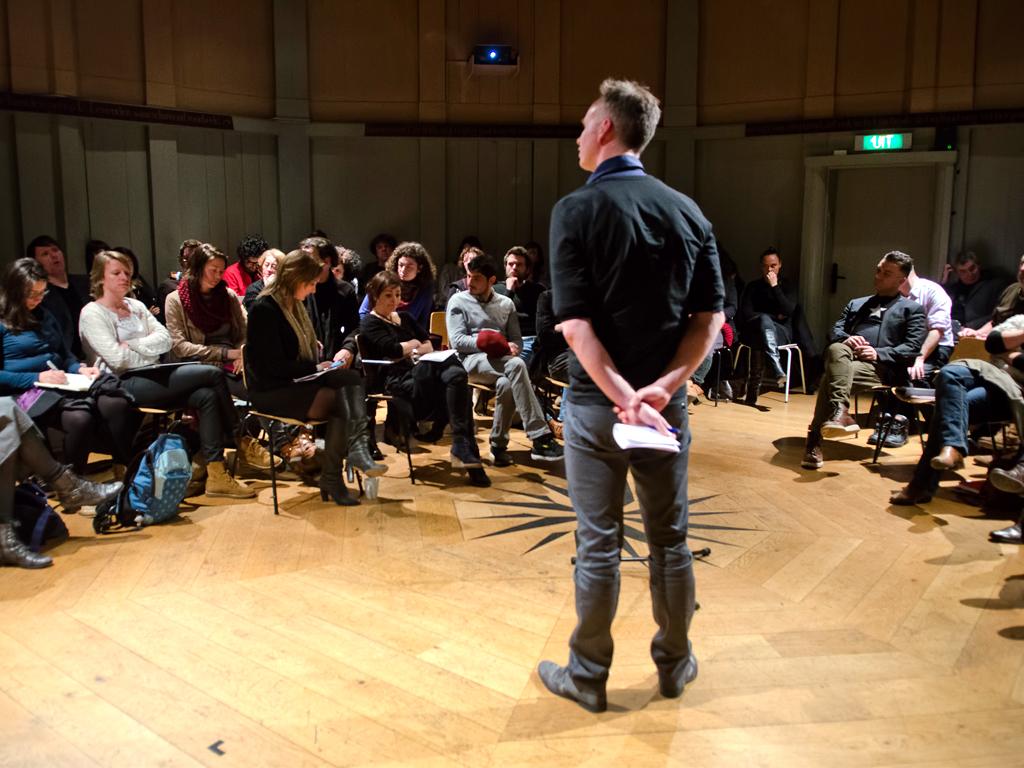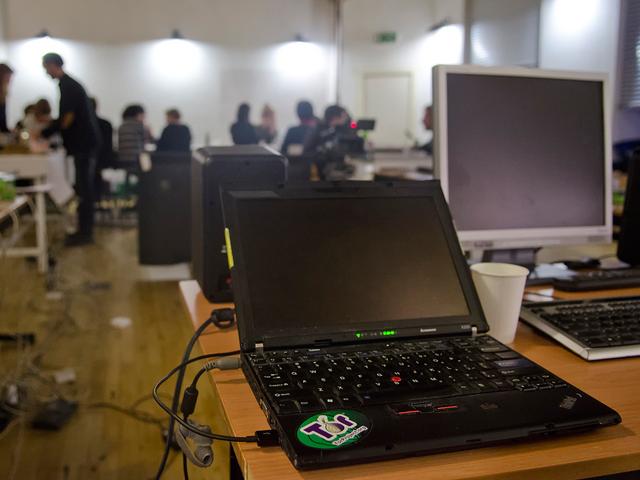By Dr. Dorien Zandbergen – Anthroplogy, Leiden University & Research Fellow at Waag
The birth of the personal computer in the 1970s, the graphical user interface in the 1980s, the World Wide Web in the 1990s and today the 'Internet of Things' have launched our global society into the so-called 'information age'. For a small group of people it is their daily job to think consciously about what this actually means: scholars, hackers, artists, active bloggers and some politicians have looked, for instance, at how democracy, capitalism, solidarity, intimacy or the sense of physical presence work in a digital environment.
Yet for the vast majority of people, digital changes happen outside of their conscious perception. They are merely confronted with constantly changing demands and requirements for their social life: They need 'DigiD’s' for their communication with government institutions; they feel the need to own a smartphone and maintain a Facebook page to keep in touch with their family or they feel the constant pressure to update their computer software and hardware in order to “keep up”.
At the same time, the technologies and processes that are behind these changes have become ever smaller, more complex, and more hidden in our daily physical environment. It is difficult, in short, to find a shared language, shared concepts and shared ways of conversation that involve large and diverse groups of people in the question how our personal lives and social power relations are actually changing in relation to digital technologies.
Anthropology of the Information Society
I am one of those people who try to reflect on what it means to live in an information society. I call myself an “anthropologist of the information society”. Anthropologists are generally interested in how social and cultural phenomena that we often describe in abstract terms (politics, religion, bureaucracy, capitalism or globalization) are experienced and “lived” in the everyday settings of ordinary people. As an “anthropologist of the information society” I focus on the question how people all over the world increasingly live their lives with, inside and through information technologies.
Most of the time I find myself wrestling with one of the core tensions in the current western information society: on the one hand, people increasingly make their sense of self-determination and freedom dependent upon the internet. On the other hand, only a few people are actually able to describe and technically understand this complex network; only a few parties materially own and control the communication that runs on it, and nobody really knows how it can be governed in democratic ways. The Forms of Todays Futures program, that I organize with Waag, Netwerk Democratie and de Veenfabriek, is one attempt to discuss this paradox with a larger audience.
Getting “Under the Hood”: Julian Oliver and Danja Vasiliev’s NETworkshop
From March 25 to 29, we had the kick-off of during our first event in this series: the NETworkshop. For a week 25 participants with very different backgrounds were immersed in the hands-on net-politics of the Berlin-based hackers, artists and teachers Julian Oliver and Danja Vasiliev. By inviting the participants to create computer networks using command-prompt Linux codes, and by teaching them how to sniff data packets in the air, Vasiliev and Oliver offered the participants ways of understanding and changing their technological environment in new ways. They also explained more about our default technological world: that when using proprietary software and free services online, our internet communication is bound to end up in profiles stored in datacenters that are protected by fierce copyright and loose privacy laws, barbed wire and gunmen. The participants philosophized about the far-reaching consequences this has for our future freedom. In this way, the participants caught a glimpse of what some may never have fully realized: that the web that we use every day is only a surface layer – a very limited one at that – that sits on top of networks and protocols that can be ‘surfed’ in very different ways – in ways that give users more understanding of and control over their ways of communicating.
The NETworkshop is changing people’s lives – or not?
The full content and scope of what Oliver and Vasiliev have to tell – stories that can also be found at hackerconferences, hackerspaces, and in discussions online – deserves way more attention than I can grant it in this short post. Yet, what I am interested in here is how this workshop made the participants more acutely aware of how they live their technological reality in their everyday life contexts. How did this workshop make them more aware of their own, non-explicit, technological politics?
I asked the participants how they thought the knowledge that they gained during the NETworkshop would be of use in their everyday lives. I was given roughly four different types of responses:
- One type of response came from people already familiar with net-politics who were willing to continue to explore the option to build their own, independent networks. They wanted to continue educating others, and to learn command-prompt level internet navigation more deeply.
- Another response came from people who were, likewise, convinced of the political value of the tools and skills given in this workshop. Yet, they anticipated limitations in their capacity to implement and push further what they learned in their everyday life environments. They foresaw a lack of technical skills within their social networks and showed awareness about the difficulty for people within their environment to implement seeming easy security requirements like having to remember long passwords.
- A third type of response came from participants who did feel capable, in principle, to continue using the internet “on the command line” and in more responsible and cautious ways, yet who admitted that they simply loved too much the easy options provided to them by commercial graphical software and free online services. They anticipated that strict implementation of privacy-awareness would result, for them, in social isolation and a loss of technological fun.
- The final type of response came from someone who thought that this workshop was not so interesting. He experienced the NETworkshop to be about “mere technology”, and a technology that is not so different from other kinds of technology. This response resonated with what some audience members had said during our evening of debate in this week. For these people, information technologies are simply tools, that can be used for good or bad. That are made by others and that they can distance themselves from.
These four types of responses illustrate, I believe, the difference in positions that people may take up vis-à-vis information technologies more generally. They suggest that people’s ways of experiencing “agency” in “the information society” is shaped in relation to many factors other than just their computer skills. They are shaped, among others, in relation to their socio-economic context, their language skills, larger capitalist structures, and the extent to which they perceive technology not only as “tools” but also as “environments.”
Keep the Conversation Going: the Forms of Todays Futures series
In order to have a good conversation about politics in our information society, we need to engage all these perceptions and experiences. In this sense, I think Oliver and Vasiliev’s workshop gives us an extremely valuable way of beginning this conversation.
I want to thank my anthropology colleagues of The Future is Elsewhere research program at Leiden University, Waag, Netwerk Democratie, de Veenfabriek, Danja Vasiliev and Julian Oliver, Marietje Schaake – our speaker during the night of debate - the founders and members of the growing number of hackerspaces and most importantly, the participants of the NETworkshop for getting their hands “dirty”, for sharing their perspectives and for opening up this conversation. Along with ongoing input from people like yourself, we will continue to explore this topic further in our Forms of Todays Futures program.

